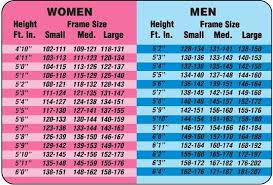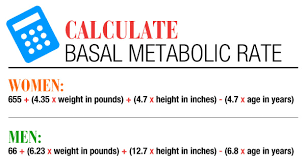 To determine the number of calories you must stay within to lose weight you’ll have to consider a few factors. The first is your basal metabolic rate, or the number of calories your individual body requires just to take care of daily body needs like breathing, heart rate, brain activity and digestion. In other words, it is the number of calories that your body burns to just stay alive. You’ll burn this number of calories every day, even if you stay in bed all day.
To determine the number of calories you must stay within to lose weight you’ll have to consider a few factors. The first is your basal metabolic rate, or the number of calories your individual body requires just to take care of daily body needs like breathing, heart rate, brain activity and digestion. In other words, it is the number of calories that your body burns to just stay alive. You’ll burn this number of calories every day, even if you stay in bed all day.
There are several formulas that you can use at home to determine your BMR, which factors in your age, gender, body weight and relationship of your muscle mass to fat. For instance, in the Cunningham formula it accounts for the relative metabolic inactivity of fat to lean body mass. To get a quick indication of the number of calories that your body needs at rest you can use a BMR calculator, which accounts for your height, weight, age and gender.
The second factor in the number of calories you’ll need to eat in order to lose weight is your activity level. People who are more active will require more calories each day to just remain at a stable weight. This is because activity burns calories.
You can increase your BMR by adding lean muscle to your body through weight lifting. This lean muscle will burn additional calories, even at rest. This is because muscle burns more calories each day than fat.
This accounts for the increased BMR for men versus women. Men naturally have a higher level of lean body mass than women, and therefore have a higher resting calorie burn than women. Men will add more lean mass to their bodies because of the higher levels of testosterone in their body.
The last factor is the number of daily calories needed to maintain the amount of weight you want to achieve. In other words, if your BMR is 1400 for your current age, weight, height and gender but the BMR for the weight you want to achieve is 1300 calories per day – 100 calories is the difference.
You must account for all of these factors when determining the number of calories you eat each day to lose weight.
 If each type of calorie was burned the same way in your body, you would have to have a deficit of 500 calories per day to lose 1 pound in a week. One pound is equal to 3500 calories and 500 calories times 7 days in a week is equal to 3500 calories.
If each type of calorie was burned the same way in your body, you would have to have a deficit of 500 calories per day to lose 1 pound in a week. One pound is equal to 3500 calories and 500 calories times 7 days in a week is equal to 3500 calories.
It’s time to find out your BMR, the amount of exercise you will get or already get each day and the number of calories you are already eating each day. Keep a calendar of foods for a couple of days to determine your current calorie intake.
Next, compare your BMR plus calorie expenditure from exercise against your current calorie intake and the BMR for a person the size and weight you want to achieve. From these numbers you can devise a plan to increase your exercise a little and reduce your calories a little to increase the amount of weight you’ll lose each week.
Just remember a couple of rules:
- Don’t ever eat less than 1200 calories per day or you risk putting your body into starvation mode and putting on weight as your metabolism naturally slows.
- Any long term fasting should be done under the guidance of your physician.
- Don’t increase your exercise too quickly or you’ll risk increasing your potential for injury. This will sideline your weight loss efforts for sure!
- Drink at least 8 glasses of water per day and get at least 7-8 hours of sleep each night. Both are important for fat burning and weight loss.
- Keep track of your calories every day. It’s amazing how quickly that number can get away from you without even realizing it.


Leave a Reply